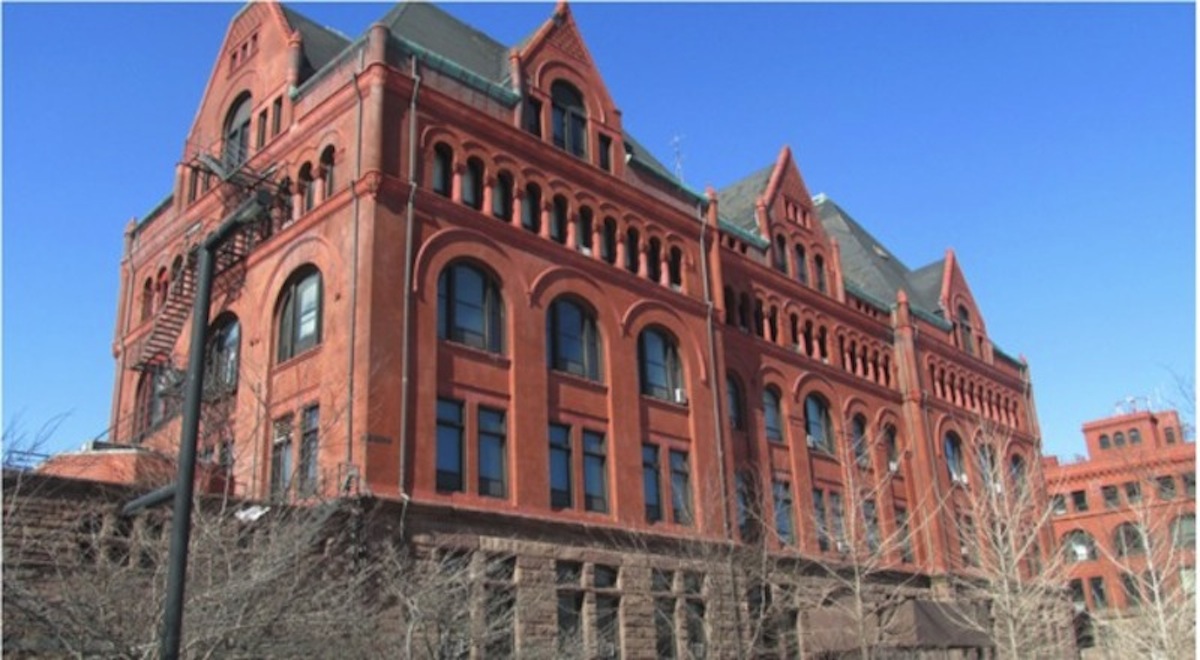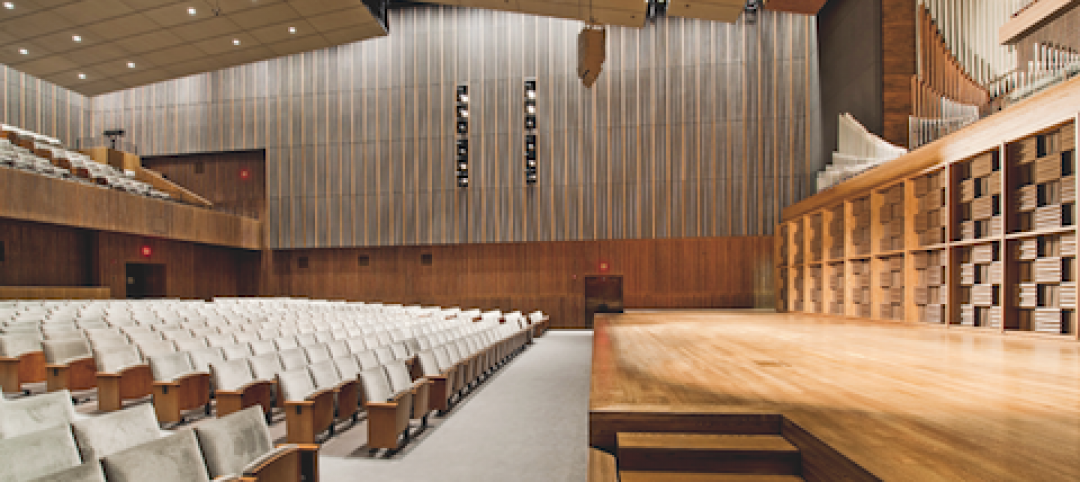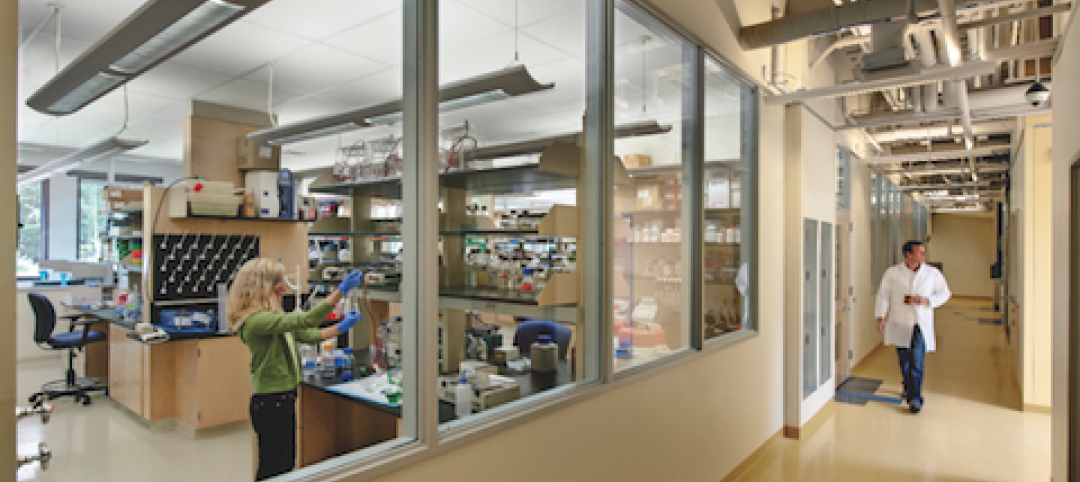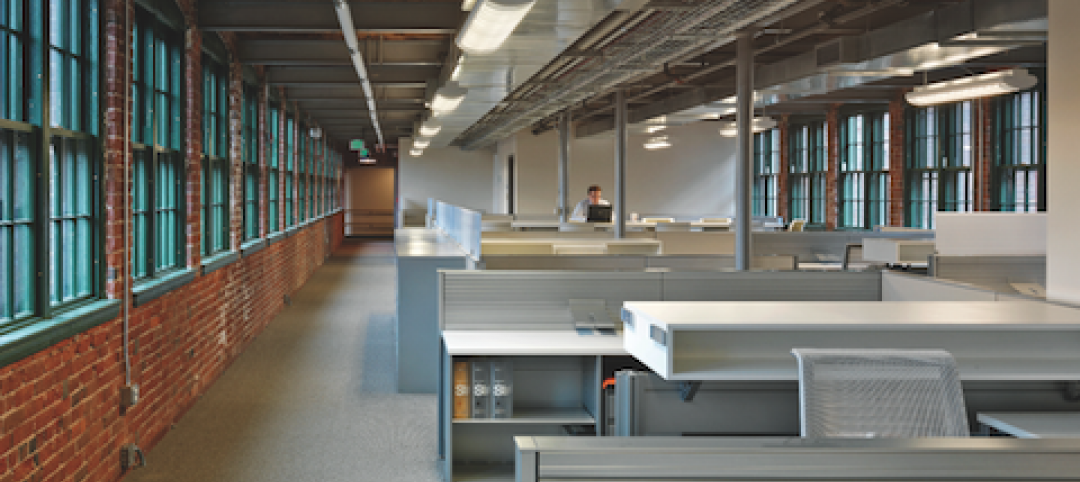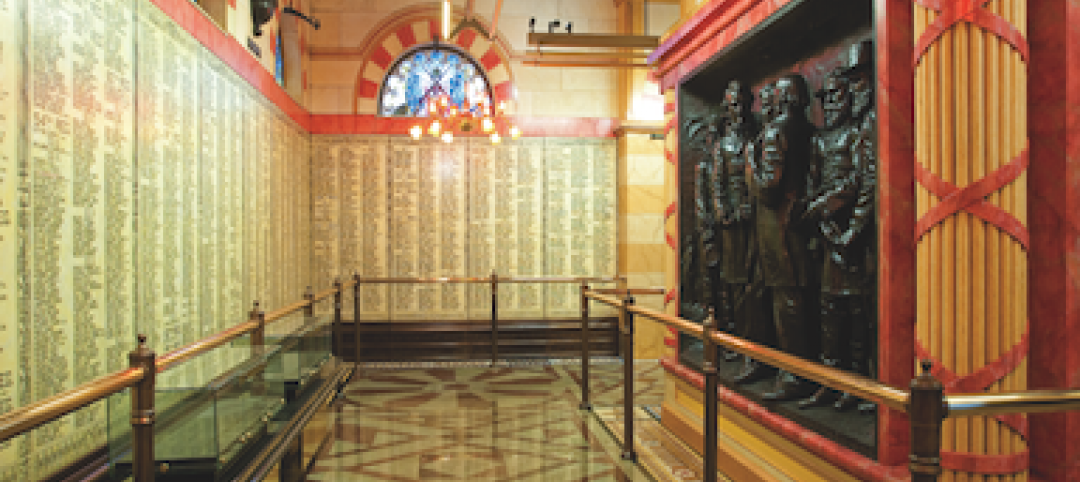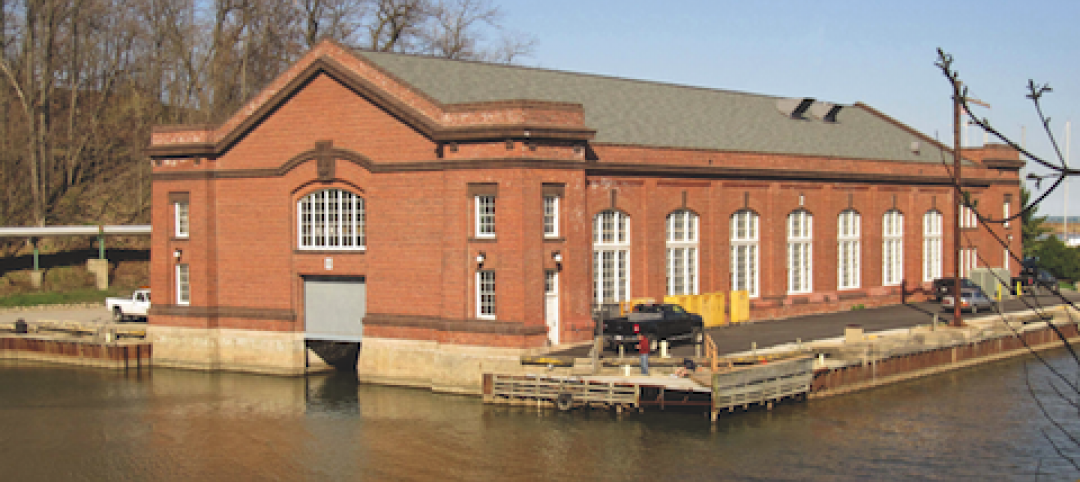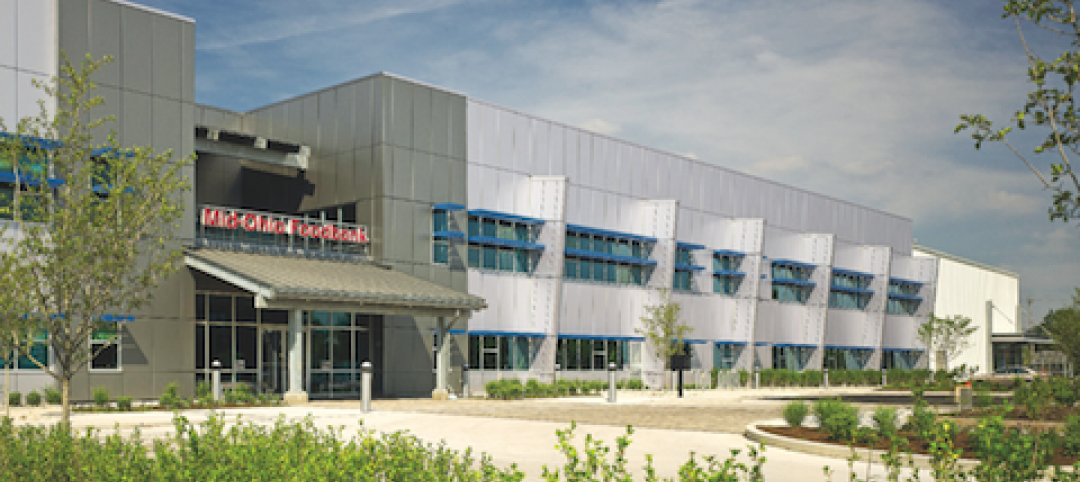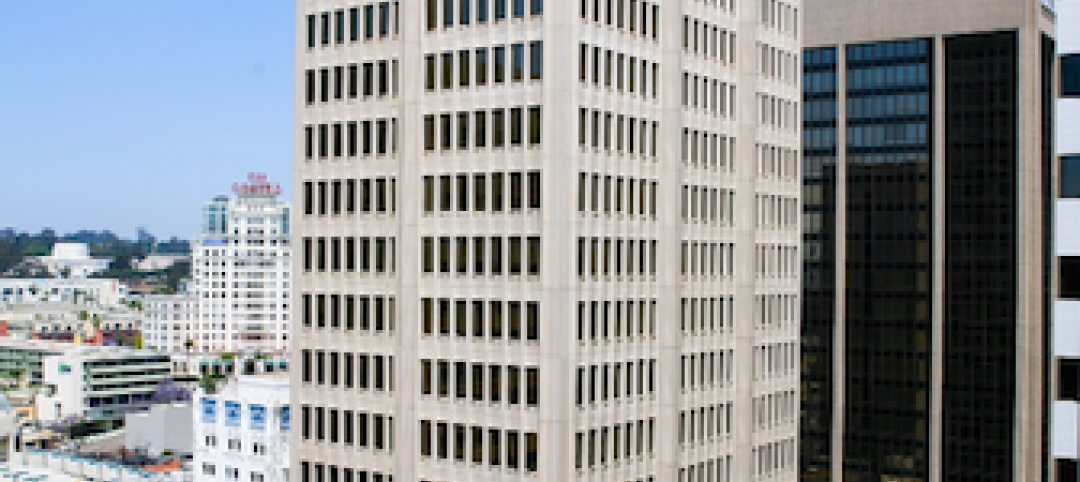Each year, Preservation Chicago publishes a list of the city buildings that are at the highest risk of being lost to demolition or decay. According to DNA Info, the organization unveiled its list on the 178th anniversary of Chicago's incorporation as a city.
"These are irreplaceable buildings that define our neighborhoods," said Ward Miller, Executive Director of Preservation Chicago.
The buildings named on the list are:
- The South Side Masonic Temple: Located at 6400 S. Green Street, the Masonic temple was built in 1921. Throughout its years, it served as a popular destination for fraternal meetings and community events in Englewood. The building features Egyptian, Moorish, and Art Deco influences.
- The Agudas Achim North Shore Synagogue: "The last great Chicago synagogue" is located at 5029 N. Kenmore Avenue and was built in 1922. It boasts Romanesque Revival, Art Deco, and Spanish influences. It's currently listed for sale and has worried Preservation Chicago that it may be demolished by developers.
- Clarendon Park Community Center: Uptown's local community center was built in 1916 for beachgoers. It sits at 4501 N. Clarendon Street and has fallen victim to water filtration and other building code issues.
- A. Finkl & Sons: The Lincoln Park steel plant is up for a major redevelopment, although Preservation Chicago is concerned the renovations may not include the historic buildings that are already standing on the riverfront.
- Illinois Institute of Technology: The Main Building at 3300 S. Federal Street was built in 1893 with funds from Chicago meatpacking baron Philip Armour. While the higher education institution has restored many other buildings designed by Ludwig Mies van der Rohe, this one has not and is being offered to developers.
- Pioneer Arcade: Once a 1920s bowling and billiards venue, the arcade at 1535 N. Pulaski Road has been empty since the mid-2000s. The building's facade is known as one of the city's best examples of 1920s Spanish colonial revival style and was designed by Jens Jensen. It's neighbor, the New Apollo Theater, also made Preservation Chicago's list.
- Neon signs: Located throughout the city, there are many old-school neon signs that bring back memories of how businesses approached advertising from the 1930s to the 1960s.
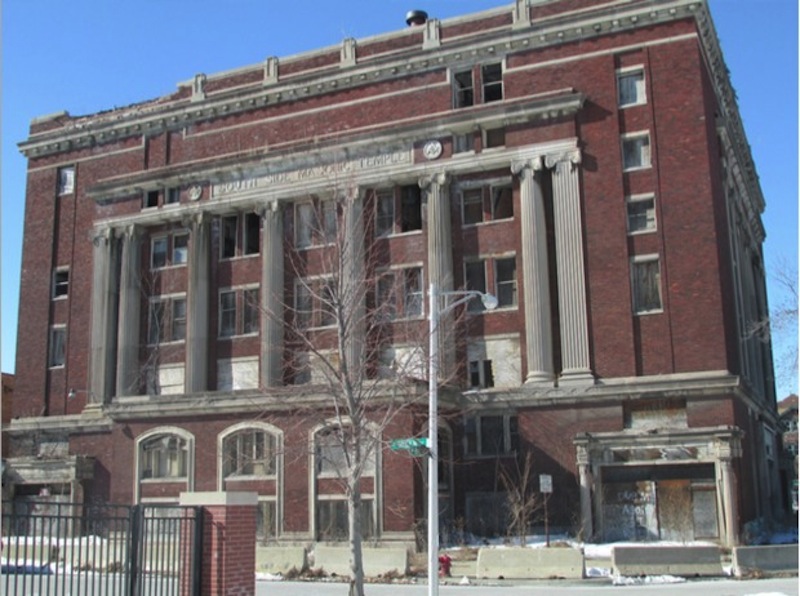 Englewood's South Side Masonic Temple
Englewood's South Side Masonic Temple
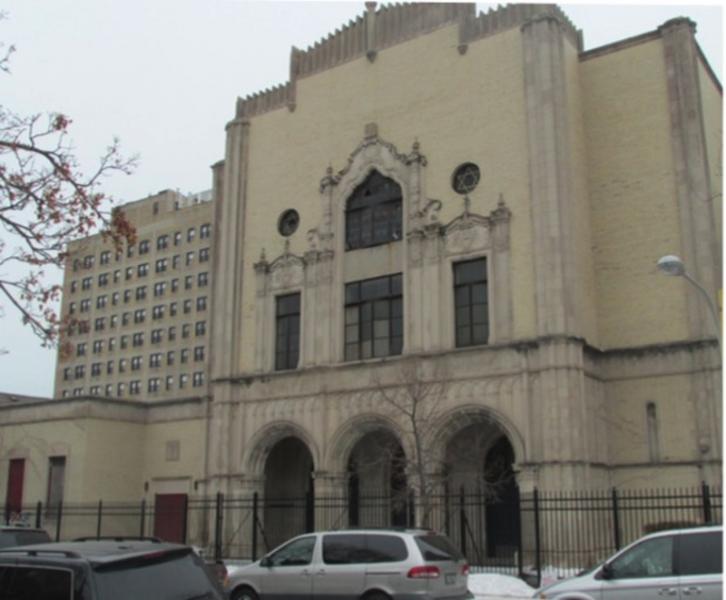 The Agudas Achim North Shore Synagogue on Kenmore Avenue
The Agudas Achim North Shore Synagogue on Kenmore Avenue
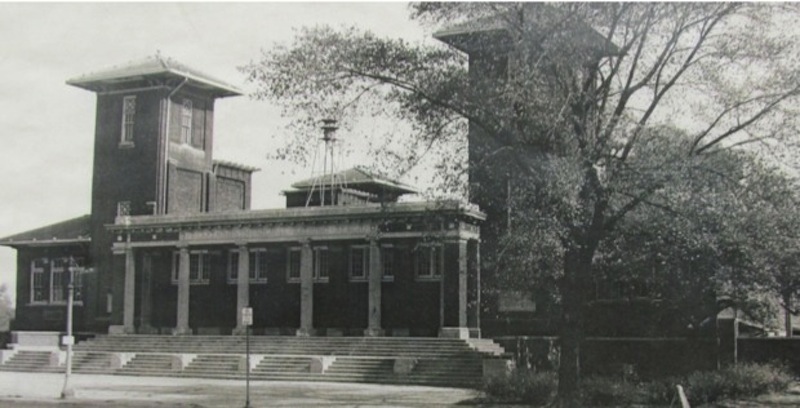 Clarendon Park Community Center in Uptown
Clarendon Park Community Center in Uptown
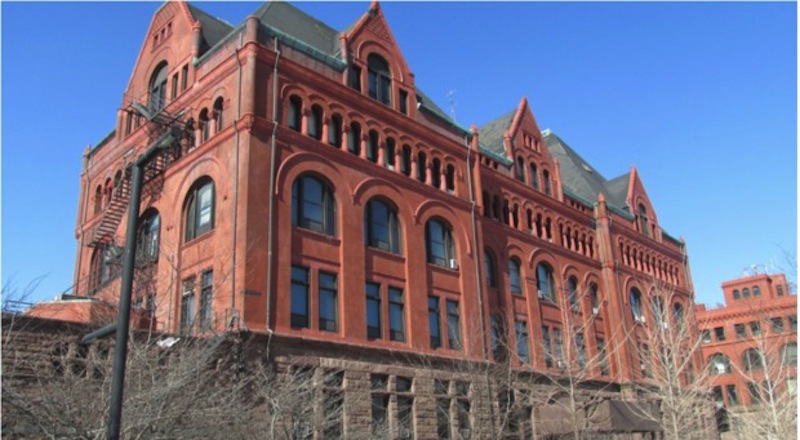 Illinois Institute of Technology
Illinois Institute of Technology
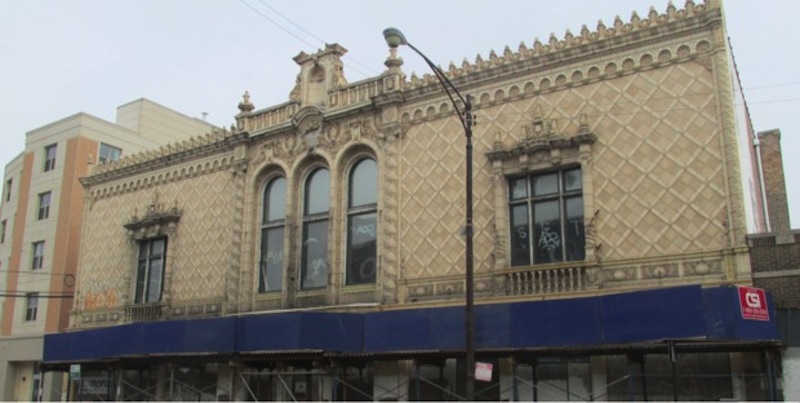 Pioneer Arcade at 1535 N. Pulaski Road
Pioneer Arcade at 1535 N. Pulaski Road
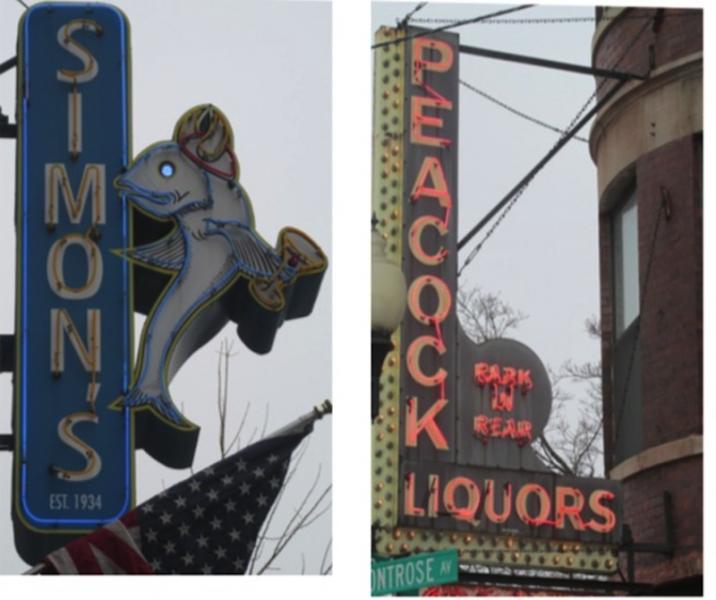 Some of Chicago's neon signs
Some of Chicago's neon signs
Related Stories
| Oct 12, 2010
Gartner Auditorium, Cleveland Museum of Art
27th Annual Reconstruction Awards—Silver Award. Gartner Auditorium was originally designed by Marcel Breuer and completed, in 1971, as part of his Education Wing at the Cleveland Museum of Art. Despite that lofty provenance, the Gartner was never a perfect music venue.
| Oct 12, 2010
Cell and Genome Sciences Building, Farmington, Conn.
27th Annual Reconstruction Awards—Silver Award. Administrators at the University of Connecticut Health Center in Farmington didn’t think much of the 1970s building they planned to turn into the school’s Cell and Genome Sciences Building. It’s not that the former toxicology research facility was in such terrible shape, but the 117,800-sf structure had almost no windows and its interior was dark and chopped up.
| Oct 12, 2010
The Watch Factory, Waltham, Mass.
27th Annual Reconstruction Awards — Gold Award. When the Boston Watch Company opened its factory in 1854 on the banks of the Charles River in Waltham, Mass., the area was far enough away from the dust, dirt, and grime of Boston to safely assemble delicate watch parts.
| Oct 12, 2010
Cuyahoga County Soldiers’ and Sailors’ Monument, Cleveland, Ohio
27th Annual Reconstruction Awards—Gold Award. The Cuyahoga County Soldiers’ and Sailors’ Monument was dedicated on the Fourth of July, 1894, to honor the memory of the more than 9,000 Cuyahoga County veterans of the Civil War.
| Oct 12, 2010
Building 13 Naval Station, Great Lakes, Ill.
27th Annual Reconstruction Awards—Gold Award. Designed by Chicago architect Jarvis Hunt and constructed in 1903, Building 13 is one of 39 structures within the Great Lakes Historic District at Naval Station Great Lakes, Ill.
| Oct 12, 2010
Full Steam Ahead for Sustainable Power Plant
An innovative restoration turns a historic but inoperable coal-burning steam plant into a modern, energy-efficient marvel at Duke University.
| Oct 12, 2010
From ‘Plain Box’ to Community Asset
The Mid-Ohio Foodbank helps provide 55,000 meals a day to the hungry. Who would guess that it was once a nondescript mattress factory?
| Oct 8, 2010
Union Bank’S San Diego HQ awarded LEED Gold
Union Bank’s San Diego headquarters building located at 530 B Street has been awarded LEED Gold certification from the Green Building Certification Institute under the standards established by the U.S. Green Building Council. Gold status was awarded to six buildings across the United States in the most recent certification and Union Bank’s San Diego headquarters building is one of only two in California.
| Oct 6, 2010
From grocery store to culinary school
A former West Philadelphia supermarket is moving up the food chain, transitioning from grocery store to the Center for Culinary Enterprise, a business culinary training school.
| Sep 22, 2010
Michael Van Valkenburg Assoc. wins St. Louis Gateway Arch design competition
Landscape architect Michael Van Valkenburgh and a multidisciplinary team of experts in “urban renewal, preservation, commemoration, social connections and ecological restoration” have been picked for the planning phase of The City+The Arch+The River 2015 International Design Competition.


